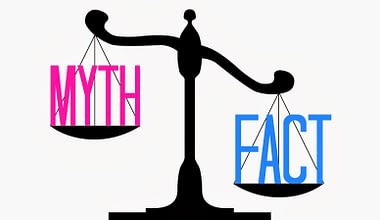Table of Contents
So that’s a bold claim, I mean small builders have so many pros, right? And big builders can sometimes be an unfriendly bunch, treat you like you are just a number, etc…
So if building with a big builder is not favorable for some, and a small builder can be risky – who do you build with?
Before I answer this question, let’s look at some assumptions first…
Builder Size
Right or wrong, below are some assumptions that we are using for the purposes of this blog:
- A small builder is defined as a builder who builds less than 30 homes a year.
- A medium builder is one in between – a builder that builds between 30 to 500 homes per annum.
- A big builder is defined as a builder who builds more 500 homes a year.
Build Size
The build size, for the purposes of this blog, is between $250,000 to $1,500,000.
The Illusions

- Illusion of Security : People think that building a small $300,000 home can be safe being built with a small builder. I mean it’s only $300,000. But think about it for a minute – how long does it take you to save $300,000 after tax?
- Please just stop here, get your calculator out and do the maths…
- It is crazy how many people I speak with who think because they are spending so “little”, that it is safe to build with a small builder.
- Illusion of More : Small builders seem to give you a lot more inclusions for a “great” price. However what most people do not think about is the total cost of ownership. Small Builders generally do not fix their price or they fix it to a certain amount. What seems to be great on one side of the equation, it is completely offset by not having a fixed site cost for your home.
- Illusion of Attention : ON the other side of the spectrum, people think that spending over $1,000,000 should be with a smaller builder for their undivided attention on their home project. While this may be true & rare, there is not enough return to justify the key dependency risk on a one-man team building your home.
Pros
- Flexibility :
- you may receive more flexibility with design works, inclusions, home features, having input into more things to do with the how of building your home, etc…
- Access to Decision Maker :
- you get to meet with the builder himself / herself. You get to speak with them direct and perhaps get a “fantastic” deal.
- Continuity :
- you get to deal with far less people compared to a bigger builder or with one person throughout the process.
- Speed :
- it’s perceived that small builders can process things quicker and have your home built faster than a bigger builder.
- Quality :
- you seem to be getting a high quality home with a small builder because they are hands-on and almost always on site vs. their bigger counterparts.
Cons
- Consequences of Flexibility
- Being too flexible creates inefficiencies within their process.
- Things take longer, every home is a whole new experience for them because they are constantly chopping and changing the process.
- Do not mistake flexibility of design works, inclusions and process because you end up paying a lot more dollars & stress for it.
- Consequences of Continuity
- while you have access to the one Builder himself / herself, you and a few other families also want the same access.
- building a home is a complex process & trying to remember and manage ALL the details for every home you are building can be tricky.
- Would you rather deal with with 4 different experts in the different building stages instead of dealing with one Jack of all trade? hmmmm…
- Illusion of Speed
- while they seem to process some things faster like design works, quick quotes on items you select, etc… BUT their overall process is much much slower.
- builders with bigger volume will always receive delivery priority from suppliers & trades compared to smaller builders.
- it is also important to note that their build time can be a very long process – instead of building a home in 10 months, it may take them 18+ months.
- Super Expensive
- It is almost guaranteed that small builders do NOT receive the best pricing from their trades and suppliers compared to their bigger counterparts. So who pays for that inefficiency? YOU…
- Pricing may end up really high due to any of the following factors:
- NOT fixing the pricing OR
- Have a caveat against some of the items OR
- Do an item with their suppliers direct so you don’t pay builder’s margin but you will still pay retail anyway 🙂
- Inconsistent Quality
- While quality can be generally good if they are focused on your home, however a more streamlined builder with a big focus on quality can also deliver the same quality and CONSISTENTLY.
- If your small builder has 5 projects or more on the go, you will find that they can only focus on so much at once leading to lower quality control
- Having one person that builds your home and conduct the quality assurance process does not work. If you are too close to the work you are doing, you may have your blinkers on to spot what you are not doing well – it’s no different here!
- Lack of Financial Backing
- This is a BIG one and you MUST seriously take note.
- I hear so many stories of small builders going broke or disappearing somewhere along the build process leaving you with an unfinished home.
- It should never make any difference how much money you are spending on your home. It’s still hundreds of thousands of dollars and I would rather spend it with a company that is financially sound – even if I am paying more money for my build.
- I am not suggesting that bigger builders do not go broke, however the chances are relatively higher for a small builder going broke compared to their bigger counterparts.
- Consequences of Great References
- “my friend built with them” – so if your friend got lucky, what makes you think you will too?
- If a company doesn’t have processes, systems, financial backing, deep and extensive know-hows, etc…; you may end up in a bit of trouble.
- It’s like saying that this poker machine just gave my friend a jackpot and I am willing to put my lifesavings into it because he told me it was an amazing machine :)!
- Stress
- Building with a small builder can be stressful due to:
- inconsistency of process
- taking too long to build your home
- not fixing your site costs and
- leaving too many things to the unknown
- If it’s one-man or a small team operation, each team member can be an entire department. If he / she is sick then your entire home will be at risk of halting and leaving you with the stress of delays / more interest to pay / etc…
- Building with a small builder can be stressful due to:
Choosing the Right Builder
Now while this blog may suggest that building with a small builder is not a great idea – it can be more suitable for you.
This blog is purposely written to have you stop & think before making a decision.
Building with a big builder also has some pros and cons. I have built & worked for big, small and medium builders.
I would pick a medium size builder any day of the week for so many reasons including but not limited to:
More to Lose
- medium size builders are generally in their growth phase, so every build counts and every review on a site like www.productreview.com.au counts.
- medium size builders are generally more motivated to do the right thing by their clients, whether because it’s their value system or just scared to be smashed in social media.
Flexibility
- Medium size builders generally offer the best of the two worlds – big builder buying power and small builder flexibility. But you must find the right medium size builder who thinks big but treat their customers as if they were a medium size company.
Financially Sound
- in tough times, it’s estimated that more 10% of market share goes back to the more stable builders.
- That’s ~20,000 homes (based on current demand as per HIA at the time of writing this blog). I do not really want to be another statistic, do you???
Collective of Smaller Brands
- some builders have smaller brands or business units that service the special market they target.
- this is great as it demonstrates that their operation understands the market and the experience required to build your home.
Finally
It pays off to do your homework. Speak with builders and ask as many questions as possible:
- How many homes they build a year?
- How long have they been in business?
- What happens if there is a problem?
- You can find more questions to ask your builder in this blog.
Make sure you select the right partner for the job!










